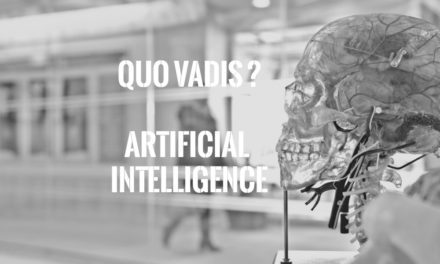
News not Noise #17
2018 – what a year. Not only the warmest in Germany since records began. Also personally it was an exciting year with many positive changes, very interesting people and lots of new impressions.
There are many developments this year that concern me. From global warming, which has become very real for many this year. The increasing of nationalism and the emerging conflict between China and the USA. Not to mention the Brexit and the problematic developments in the EU. And last but not least the increasing tensions between winners and losers (if you like) of globalization and digitalization.
On the other hand, the constant availability of information (“news”) has made it much more difficult to see the really important things like longer-term developments showing that we live much better today than we did 10, 20 or 50 years ago. Books like Hans Rosling’s “Factfulness” are therefore a highly recommended reading.
Personally 2018 was a very interesting year with a new focus on the topic of AI. I got to know interesting people and made new friends. Above all, I learned a lot.
Through my work for the AI Competence Center in Tübingen and Cyber Valley I also had the opportunity to contribute to the development of the German AI Strategy. Equally interesting were contacts to startups and incubator initiatives in the field of AI.
What’s the bottom line? And what will 2019 bring? One could write novels about this and still not do justice to the topics. Here are a few brief thoughts.
In 2018 the topic AI and especially Machine Learning experienced a hype. In the meantime you can read articles about AI in every newspaper. Many people have exaggerated expectations as well as fears as they read the news. Will robots take over my workplace? Will robots destroy humanity? Will autonomous driving come tomorrow? Is the video or image really real or was it created by an AI system? And so on. At the same time we see a race to AI nationalism. Many countries have developed their national AI strategy in 2018, as this is seen as one of the most important technologies of the future (and thus of economic and social development).
I can only recommend everyone to read the book “AI Superpowers” by Kai Fu-Lee. It describes very vividly the development especially in the USA and China, the leading nations in the field of AI. In an interview he recently commented on his view of Europe. And that is not positive. He sees no chance for Europe to keep up with China or the US in AI development. A very interesting interview that makes you think.
Germany also developed an AI strategy this year. Certainly a good first step, but far from enough to bring Germany (and Europe) to the top of this development (which is the declared goal of the strategy). In 2019 it will be critical to focus quickly on the implementation of this strategy. Development in this area is progressing so fast that speed and flexibility will be extremely important. We can not follow a fixed plan for the next few years. This makes it all the more important to define the right goals and KPIs, measure them and then act on them. Even if this is often difficult to implement in (political) decisions and processes. One focus area is AI research: how do we create the basis for excellent AI research in Germany (Europe) and attract more top researchers to Germany (Europe) than we will lose to the USA in particular? Initiatives such as ELLIS Society will be an important success factor here.
Even though there is already much discussion about AI in general, the applications of these technologies in business and society are still at the very beginning. In 2019, we have to do much better to transfer the knowledge about AI and its possible applications to industry . Especially for medium-sized companies in Europe. We also have to promote and support start-ups that create new solutions based on AI. We should do everything we can to refute Kai Fu-Lee. New world market leaders can also emerge in Europe. However, this would require courageous initiatives both in the industry and at the political level.
Europe still has advantages over the USA, at least, when it comes to the use of AI in industries. China, on the other hand, is also very active in this field and should not be underestimated. Initiatives such as Cyber Valley or appliedai are therefore important and should be supported and expanded in 2019.
And one last thought. We need much more knowledge about AI with each of us. The use of AI is changing a lot. In the world of work, but also in our society. This requires discussions that are difficult to hold without sound knowledge.
I hope to do my part on all these important initiatives and I plan to work much more with startups in 2019 to make a change.
2019 will certainly not be boring.
Happy New Year
P.S. if you have some time you might want to read this article with views from Geoffrey Hinton and Demis Hassabis on the future of AI




